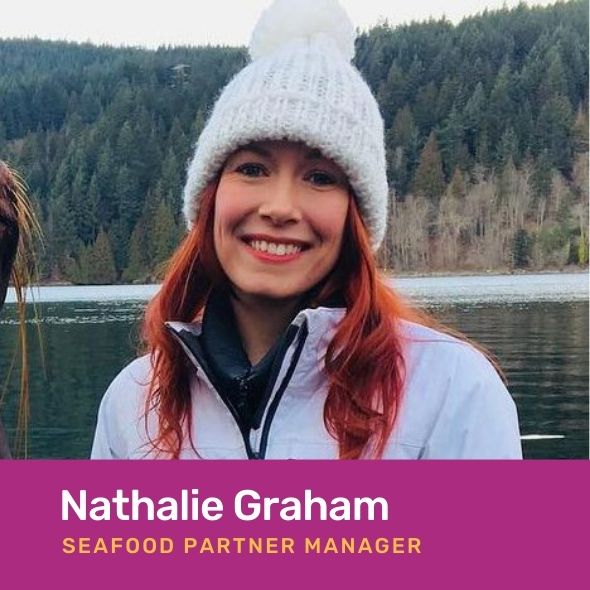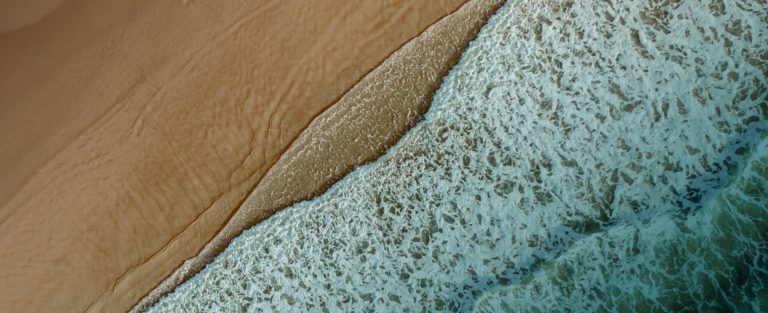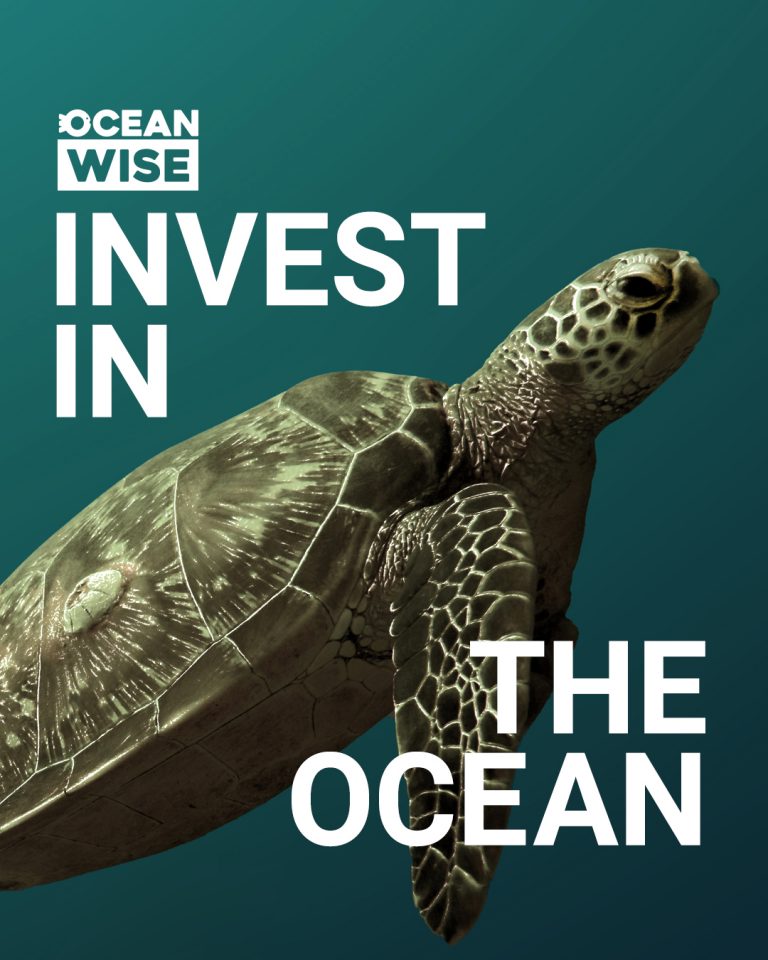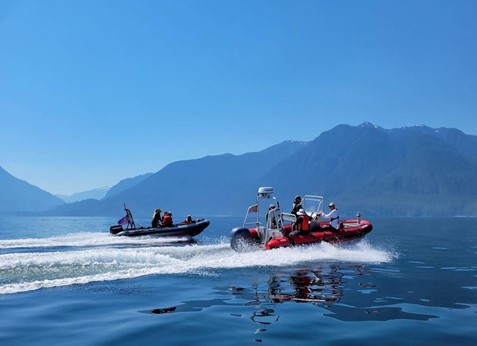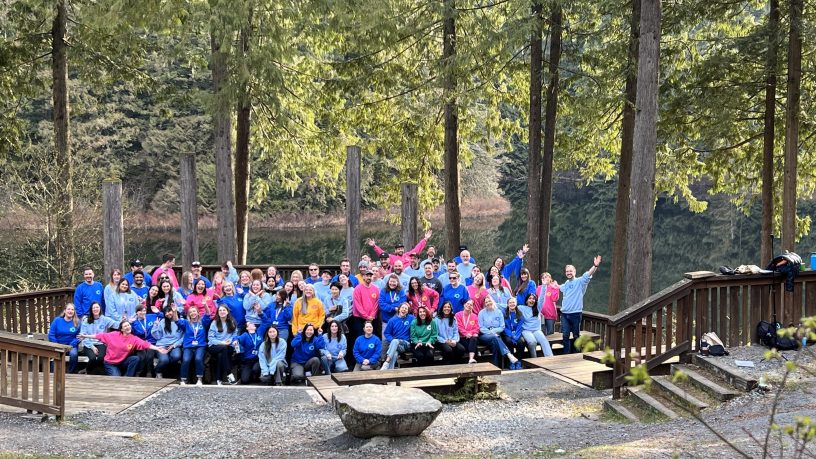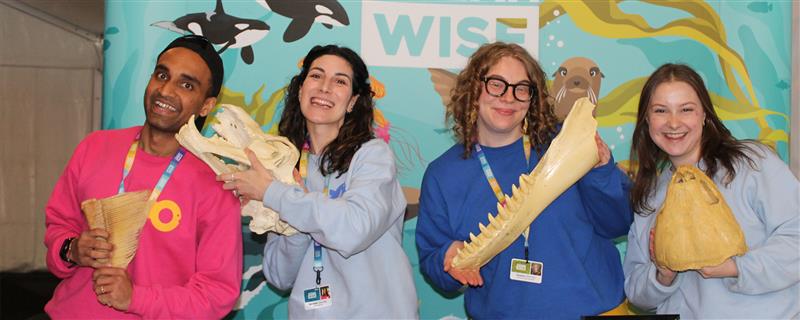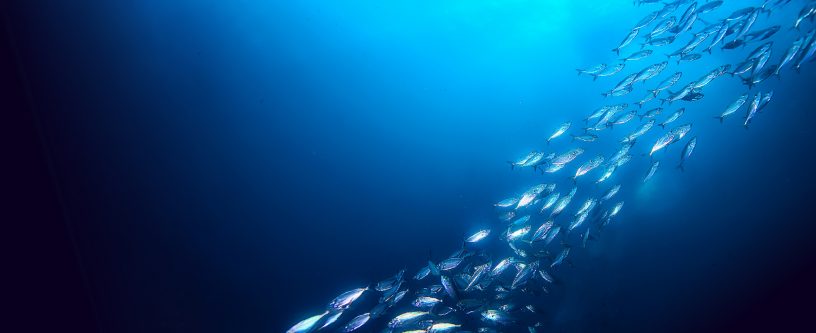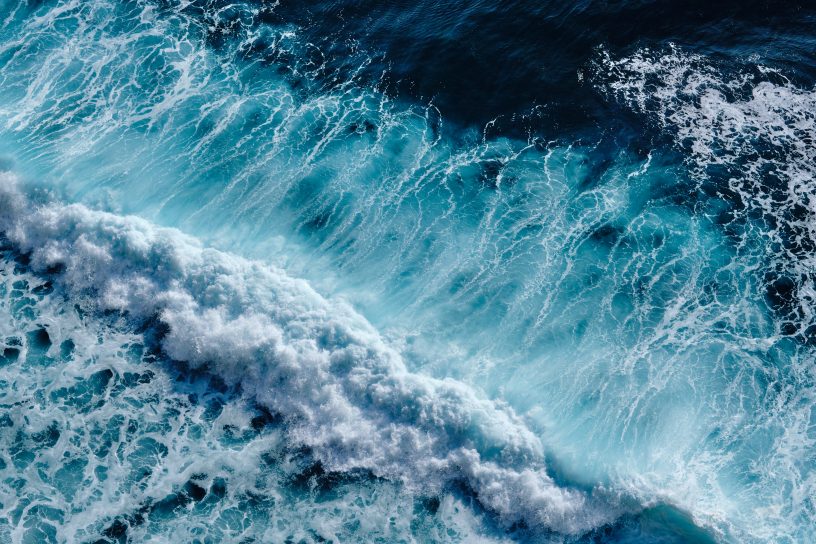Working in Ocean Conservation with Chloe Robinson PhD.
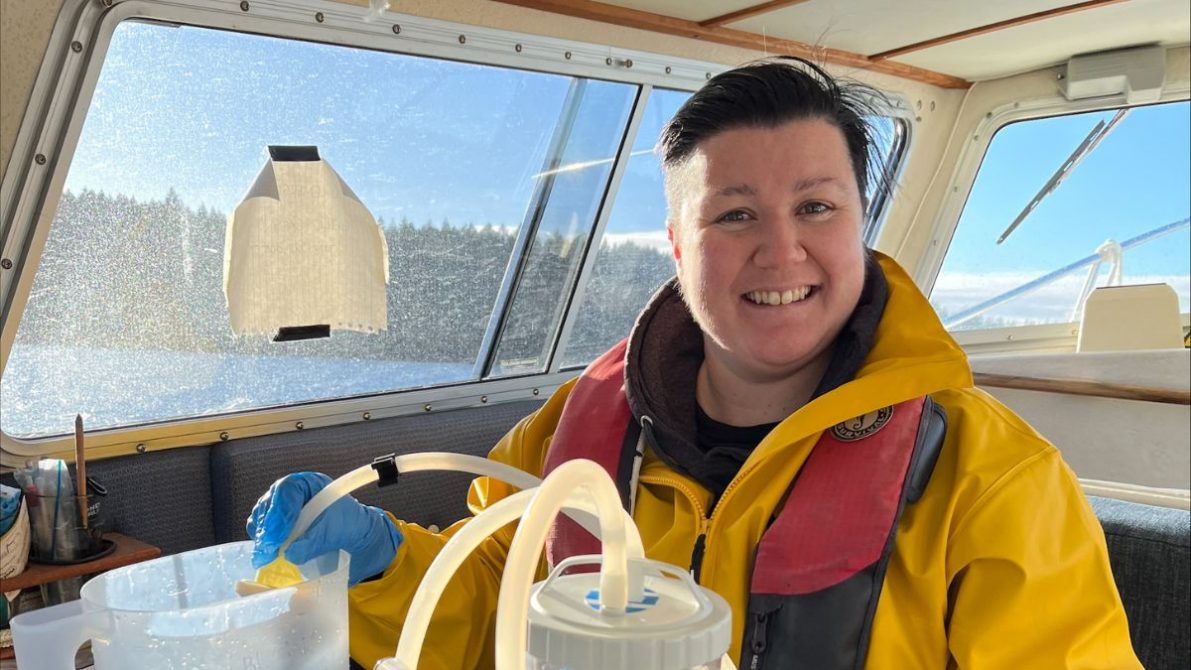
In honour of International Women’s Day tomorrow we chatted with five of the talented women at Ocean Wise for their advice and insights on working in the industry.
In this blog we’re highlighting our fantastic Ocean Wise Director of Whales, Dr. Chloe Robinson.
How did you come to work in ocean conservation?
Since I was about 11 years old, I knew I wanted to work with whales, with Canada as my dream country for doing this work. Being from the UK, I found it difficult to get into a career with whales as its very competitive, so instead I focused my early career on freshwater ecology and conservation with the eventual goal of moving to marine systems and species.
What have you learned in your role so far that has surprised you?
The sheer force and power of citizen science. Having worked with the Ocean Wise Sightings Network since I started with Ocean Wise in 2021, it amazed me how a strong and dedicated observer base can really contribute to the conservation of whales. The WhaleReport Alert System (WRAS) is only possible in BC and Washington State due to the incredibly dedicated sightings network that Ocean Wise has built over the last 20+ years.
Do you have any tips for staying positive and managing eco-anxiety?
When I start to feel despair at the bigger picture of conservation, I tend to look inwards. I draw positivity from my team and seeing the positive action my colleagues make every day towards protecting and conserving whales give me a drive to remain positive and not get sucked into the doom and gloom. I also recommend celebrating all the little victories – the submission of papers, the news of a new whale calf being born, the resighting of a whale after many years – all these little things help to stave off the dread.
Do you have any advice for people looking to get into the field?
If you are unsure of your exact career path, keep your choices broad and choose transferrable skills! I chose Zoology as my major in university instead of Marine Biology, as this enabled me to take genetics courses and animal behaviour. This greatly benefitted me as I ended up doing a PhD in environmental DNA which wouldn’t have been possible if I had taken Marine Biology. Overall, staying broad if unsure on career path will enable you to easily transition to different areas of ocean conservation once you have a better grasp of what you want to accomplish in your career.
What is the most rewarding aspect of working in ocean conservation?
Seeing the positive impact of many weeks/months/years of delivering conservation projects makes everything worth it. I would also say that it is the people you work with – there is something very special about working with dedicated people towards the important goal of protecting whale species.
Read the rest of our International Women’s Day Interview’s Here:
Posted March 6, 2024 by Kim Bricker
